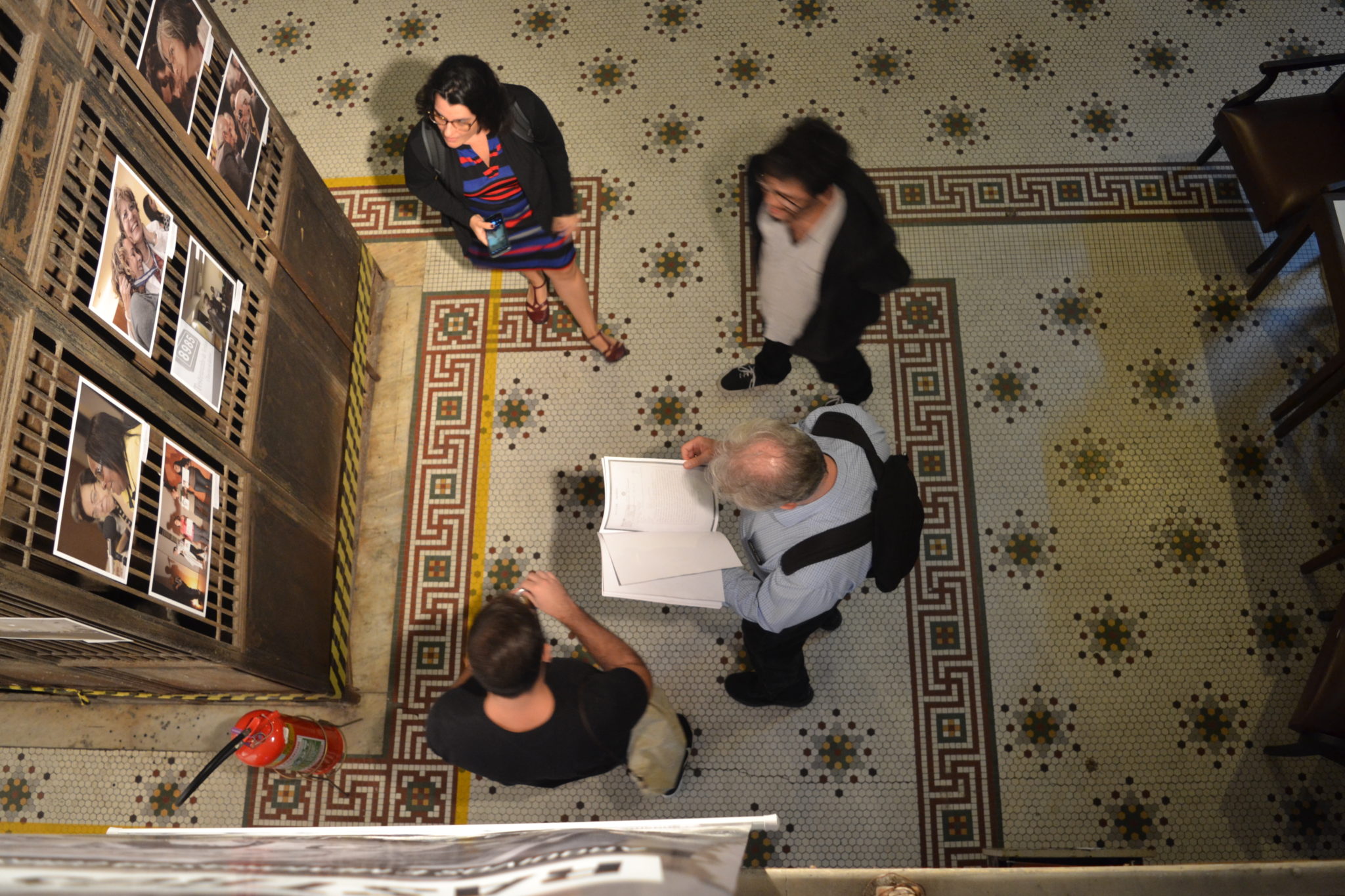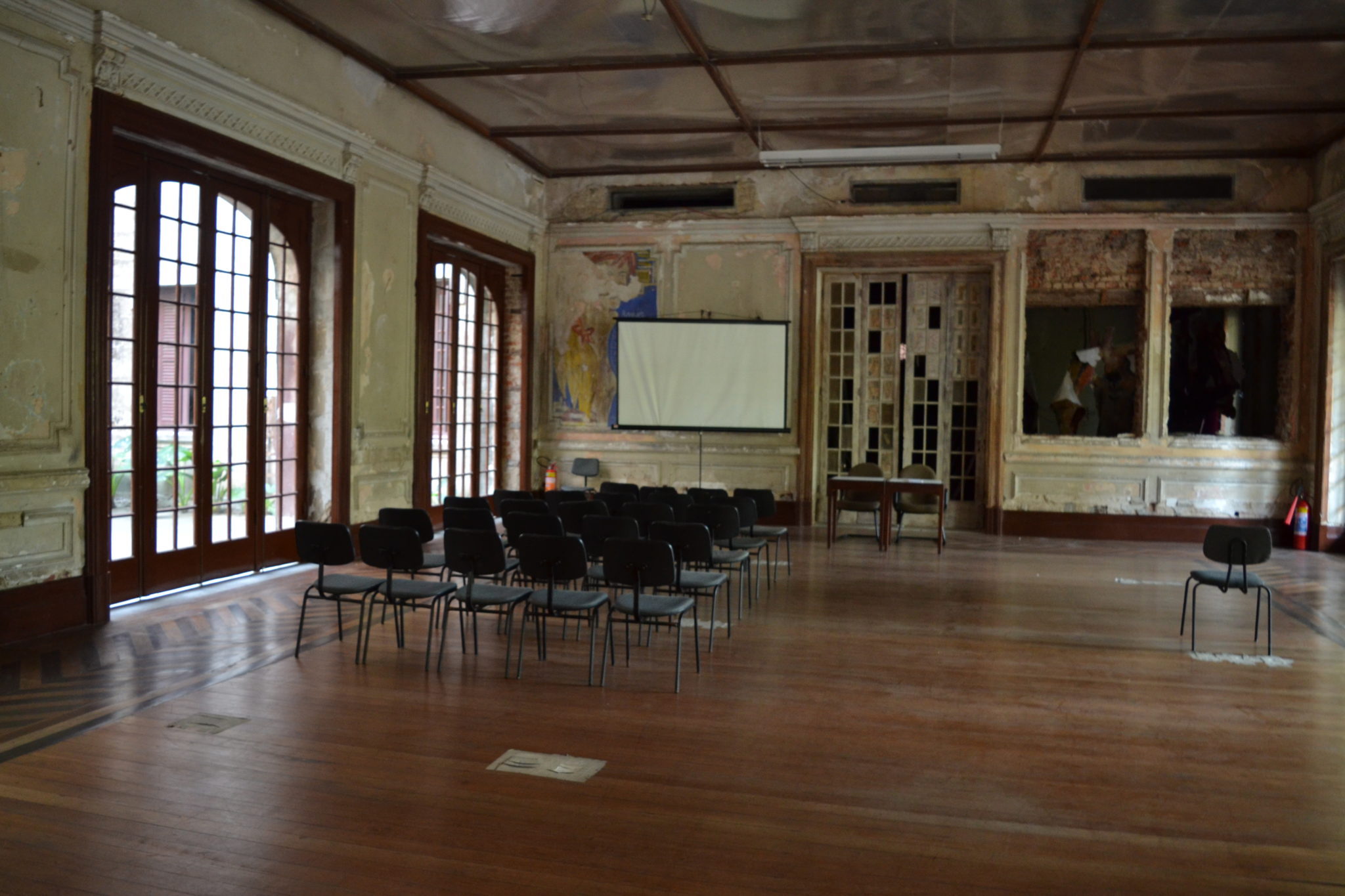Article begins
What might a letter of complaint to a university truth commission reveal about Brazil’s political climate and the multiple lives of documents?
The letter wobbled in brief, nervous tremors between Pedro’s mature hands—the left one adorned with a large, silver watch. He moved slightly in his chair to greet the new arrivals, making sure that the attendees promptly took their seats around the oval table to begin an already late meeting. They were gathering to discuss the future projects on which the public university truth commission he was now chairing would embark. More importantly, they would talk about the contents inscribed in the trembling letter. It had been typed on white, letter-sized paper and was signed and dated with blue ink on the back of the approximately five, stapled pages of “evidence” that comprised the message. In general, the letter focused on the sender’s perspective concerning how Pedro had arrived at the position of chair.
My goal became to analyze how the efforts of truth commission members transcend the relatively short mandates of these bodies, position actors between the realms of state and civil society, and rely on the materiality of archival objects to create knowledge about Brazil’s recent dictatorial past.
In his soft and rather low voice, Pedro—a well-established Brazilian anthropologist—welcomed and thanked everyone for coming to this extraordinary but nevertheless official meeting. The truth commission had been created in 2013 to investigate human rights abuses committed against faculty and students during the 1964–1985 Brazilian dictatorship. Starting soon after the 1964 coup, survivors of state-sponsored violence, civil society groups, scholars, and lawyers have struggled to reveal the facts of the dictatorship, publicly denounce perpetrators of human rights abuses, and achieve justice for victims in the courts. In this context, a series of official and grassroots transitional justice initiatives that took root in the mid-1990s and continued into the 2000s sought to create mechanisms to reckon with the aftermath of dictatorial violence in the country (Abrão and Torelly 2013). These included truth commissions that formed at national, state, municipal, and university levels (Schneider 2019).
When a new administration took office at Pedro’s university in early 2019, they decided that the current political context—in which public universities are being targeted by the Bolsonaro administration’s draconian cuts to education funding—required that the commission be restructured. The aim was to have a truth commission that not only focused on the regime’s human rights abuses, but also traced links between past and present state violence.
Yet, the commission’s restructuring was not free of internal struggles, as was revealed at the meeting mentioned above, which was held on a stormy spring morning in early November 2019. The strong wind that crashed into the open and tall, early-twentieth-century windows and wooden doors that enclosed the stylistically grandiose (if somewhat dilapidated) room where we were gathered was an appropriate preamble to the reading of the letter. The murmur of about 15 attendees—chitchatting about the devastating coup against Evo Morales in Bolivia and expressing joy over former Brazilian president Luiz Inácio Lula da Silva’s recent release from prison—seemed to be swallowed by the large, almost empty space. Soon we were all silent, and Pedro began by explaining that he needed to read the letter out loud, and not just any version of the letter, but this particular one. Other electronic copies of the letter had circulated among some of the attendees, yet the one in Pedro’s hands was dated and signed by its author.

Exhibit of the work of the Rio de Janeiro State Truth Commission organized by the incoming members of the University Truth Commission prior to their joining the commission. Macarena Moraga
The attendees looked at each other and nodded expectantly. Elisa, the commission member who had invited me to the meeting via text message, quickly distributed copies of the agenda and a proposal for upcoming events (which included seminars, exhibits, and commemorations). “This will be good for your fieldwork,” she had mentioned upon my arrival to the building. Her reasoning was that it would behoove me to observe firsthand the conflicts that arose between some of the incumbent members who had been removed from their positions within the commission and the incoming ones.
In reality, as is usually the case during fieldwork, I felt increasingly confused. It was as if I had been thrust into a new existence during these early stages of research. My goal became to analyze how the efforts of truth commission members transcend the relatively short mandates of these bodies, position actors between the realms of state and civil society, and rely on the materiality of archival objects to create knowledge about Brazil’s recent dictatorial past. As Elisa finished distributing papers and sat down at the other end of the table, I was trying to piece together and make sense of blurry patches of information, names, and trajectories. Simultaneously, an attendee laughingly exclaimed, “What a world of paper, people!”
Pedro then took the letter between his hands and proceeded to read it out loud, adding that the letter’s author had requested he do so. The chair of the commission mentioned that he wanted to read the letter to help maintain transparency and clear the air. This was despite the reality that the document, though cordial and eloquently written, featured an accusatory tone against Pedro and the university administration that replaced the sender. Specifically, the sender expressed regret over what they regarded as the disgraceful way in which they were removed from the position of chair of the truth commission and replaced by Pedro.
What struck me as especially important was the focus on maintaining transparency and following official protocols, and on avoiding ambiguities by tracing the path of the exact object that reflected the conflict between sender and recipient.
Employing language that permeates the field of “memory and justice” in Brazil, the letter utilized terms such as “amnesia,” “forgetting,” and “archive.” It alleged that Pedro had worked his way up to the position of chair by exploiting his connections with the university’s administration. For this reason, the sender wanted the letter to be preserved and made part of the collection of documents that the renewed commission would eventually archive.
The letter indicted: it asserted a narrative in which its author described themselves as the victim of supposed machinations carried out by a colleague who, in their view, confabulated with the incoming administration that oversees the commission and subsequently emerged as chair of this truth-seeking initiative. For the attendees of the meeting, however, the letter represented an unfortunate attack against a trusted member in the community of memory and human rights activists.
After finishing the letter, Pedro proceeded to read the attached evidence. The paper trail was made up of approximately five additional pages of email threads that were meant to buttress the claims raised against Pedro, who after the end of his reading turned silent for most of the remainder of the meeting. I heard someone murmur that both the sender and recipient used to be colleagues and friends.
The emphasis I have placed on this particular object reflects the way that social actions are triggered by inert “things” (Latour 2005). Indeed, objects and their properties, no matter how mundane, produce effects and affective states (Bennett 2010). This actant-letter is tied to its producer not only by the ideas expressed therein, but also through the actual traces of blue ink threaded in the form of a signature. Though it is true that the letter could have triggered its material effects had it been sent only via email, Pedro’s insistence on reading the signed, hard copy provided the situation with layers of meaning beyond those found in its contents (perhaps including redemption, vengeance, or a sense of impasse).

University space where the meeting was held. Macarena Moraga
What struck me as especially important was the focus on maintaining transparency and following official protocols, and on avoiding ambiguities by tracing the path of the exact object that reflected the conflict between sender and recipient. Further, interpreters would now add to the letter’s meaning (perhaps attributing to it pettiness, resentment, or simply a misunderstanding). Perhaps more importantly, the letter positioned the writer and recipient as two opposing bodies suspended in relation by this object’s force (Canguilhem and Savage 2001:8).
This suspension had a temporal dimension. The letter will be archived as an object containing its own past, but it is also both open to the future (Garcia 2016) and exists in a continuous present (Stanley 2004: 208). Thus, the letter is placed almost impossibly in multiple moments simultaneously: as a conversation between the sender and recipient that never really took place face-to-face, and as the interaction between the author and an imagined public that will someday have access to the archived letter. These conversations did not happen, and yet they were nonetheless conceived in and through the letter at the moments when it was typed, sent, and read (Stanley 2004).
As the meeting concluded after nearly two and a half hours, three conclusions percolated: the evidence did not support the accusation against the anthropologist; Pedro did not prompt the removal of the ex-chair of the commission (rather, it was a “natural” transition mediated by the incoming university administration); and a written response focusing on the truth commission’s future projects was necessary. The idea was not to scold the sender. After all, meeting attendants concluded that they were all part of the same community of leftist activists and civil servants who were constantly being trampled on on throughout Brazil by Jair Bolsonaro’s far-right administration.
The meeting ended and the rain continued. Pedro placed the letter at the center of the table, at the cusp of “the world of papers.” I realized how fragile this object would be under the loud and furious rain, and yet how strong its impetus was.
Macarena Moraga is a PhD candidate in the Department of Anthropology at the University of Florida. Her research focuses on transitional justice, memory of state violence in Brazil and Chile, ethnographies of archives, and the anthropology of the state.
Please contact Joseph Feldman ([email protected]) with your essay ideas for the SLACA section news column.
Cite as: Moraga, Macarena. 2020. “Reading Complaints.” Anthropology News website, March 6, 2020. DOI: 10.1111/AN.1368

